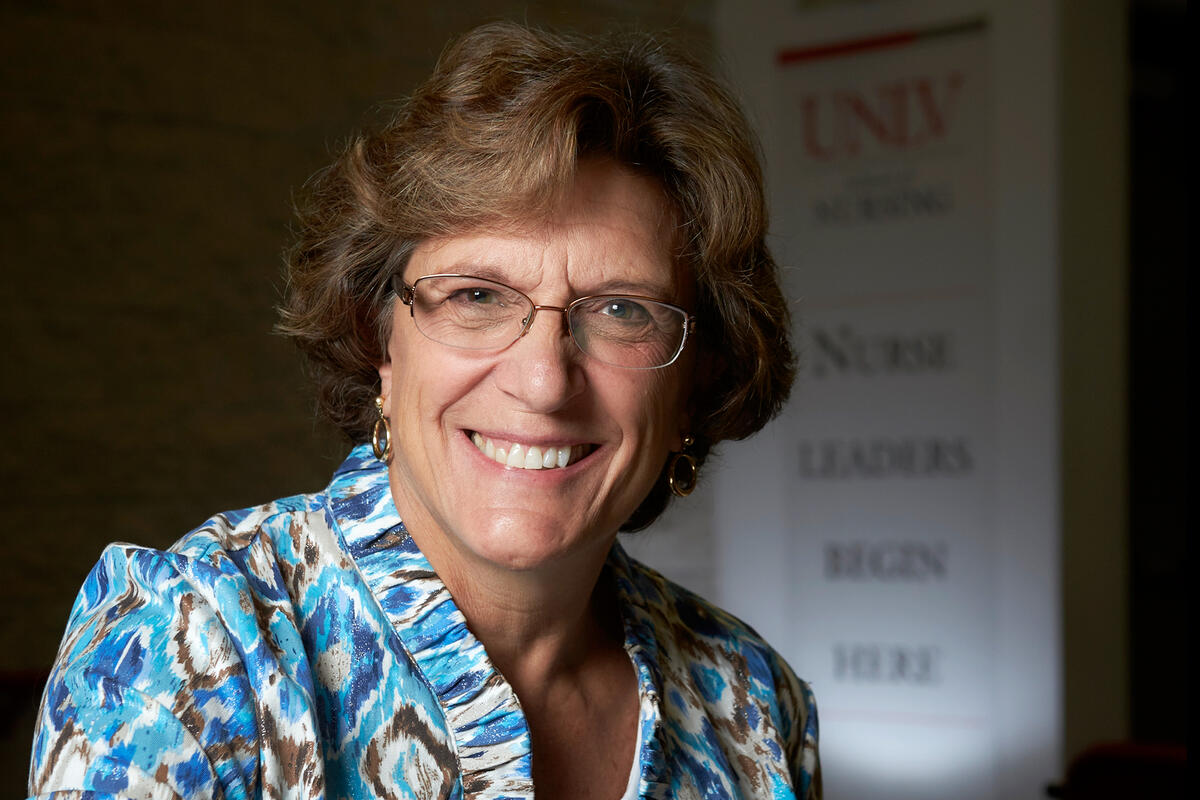In high school, Carolyn Yucha (that's pronounced "yoo-ha") was an aid in a women’s unit at a state mental hospital. Some of the patients, she would later figure out, were not ill. They were old. They had dementia or Alzheimer’s. And some of their behaviors came from anti-psychotic medications they didn’t need. One day she brought in puzzles and was thrilled to see some patients walk over and start doing them — they engaged. “I went off to college thinking I was going to change the face of psychiatric care. When I was introduced to cancer care and critical care nursing, I thought I’d change that too.” Many things in nursing have changed, she said, and some things are still left to do.
One of my early positions in a cancer research hospital got me hooked on research and I returned for my MS in Nursing. When I got pregnant, I started teaching part-time. I realized that I was able to provide the right mixture of education and entertainment to keep students engaged. This should not have surprised me because nurses are teachers at their core.
TV shows can drive me crazy. On an episode of CSI, a nurse leaves the room as soon as the investigator comes to see a brain trauma patient. Then it’s as if he discovered this yes-no-blink thing. Good grief. Every nurse is able to figure out a way to communicate with patients who can’t talk — it’s such a basic skill. It would have been much more realistic if the nurse had stayed to help the investigator.
Do you think smart people will want to become nurses if all they see is us standing in the background saying, “Yes, Dr. House”?
But nurses don’t do themselves any favors. Physical therapy requires a doctorate, but you can become an R.N. with just an associate’s degree. We’ve been talking about the need for higher levels of education for the credential since the 1970s.
It can be tough to convince a student — especially our first-generation students who want to start contributing to their families right away — that they should put in the time for a bachelor’s. But that higher degree will take them so much further.
Associate’s programs do a great job teaching all the technical tasks of patient care. But the bachelor’s starts with solid general education that we build on to develop problem-solving within the profession.
Frankly, if it takes a couple sticks to get an IV in my arm, that’s less important to me than a nurse who recognizes that my confusion might be related to the mix of medications I’m on.
Academia has always had a problem with educating students in silos and then sending them out to a world that expects them to work as a team.
I once had a job where if you made a medical error you got written up. It was supposed to teach you to not make mistakes; instead it taught people to never admit them. And it divided nurses and physicians.
We built the Clinical Simulation Center with Nevada State College so we could run scenarios right alongside medical residents from the University of Nevada (based in Reno). That interprofessional education is so critical. The center allows future nurses and physicians to practice together, to focus on recognizing and fixing their mistakes.
I hope the education UNLV offers in the health professions is enhanced at all levels as our own School of Medicine gets off the ground. When you’re starting from the beginning, you don’t have to undo decades of entrenchment to infuse a curriculum with a new approach, with that team approach.
My biggest challenge is finding faculty. There are so few here in Nevada with advanced degrees. Mid-career faculty with kids — it’s tough to get them to uproot for Las Vegas. In Boston when they want to make the next career jump, all they have to do is commute less than an hour the other way to a new campus.
During the recession, I lost five senior faculty to buyouts. It was great for them and saved some budget, but ouch for the rest of the School of Nursing. We hired some fantastic assistant professors but it takes time for them to become productive. I go to bed every night worried that some other dean is going to steal them away.
We’ve created graduate programs to fill the need for faculty and really to influence the profession well beyond Las Vegas. Program-building takes years. It can be hard to recognize progress. So it was huge when U.S. News ranked us in the top 10 for online graduate programs in nursing education and in family nurse practitioners.
I am frustrated that we still face this second-class status to physicians. I was appalled when a hospital in town developed its board and didn’t put a single nurse on it. That’s old-school thinking. Nurses make up 50 percent of hospital staff — you can bet they’d have some special insights to offer all those business leaders on the board.
In truth, though, this is a great job. Our students are snapped up and local employers report that they transition so well into their first jobs. Our faculty are growing as teachers and winning National Institutes of Health-level grants. We’re needed. So I can’t worry too much about the fact that nursing sometimes seems overlooked. That is nursing in a nutshell.



